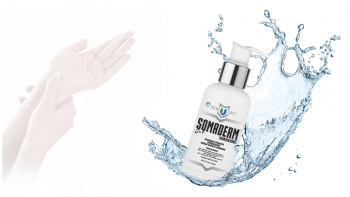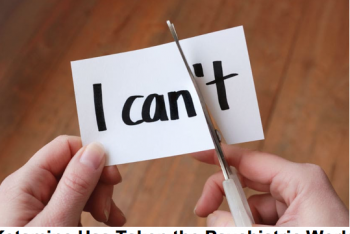CommentsIs the world’s most popular beverage good or bad? With all of the conflicting studies, you may feel confused about whether or not coffee is beneficial or harmful. As a regular coffee drinker myself, I can relate. Some research speaks of its powerful disease-fighting properties while others suggest that it has negative effects on the body. One thing I know is that my 93-year old granny has been drinking coffee every day since she was a teenager. How bad can it be right?
Like all things, there are always two sides to each story. It really is up to each one of us to decide whether or not to down our morning java but I want to share recent positive findings about the advantages of coffee. I have good news for my coffee-drinking friends!
The latest research is showing promise that consuming coffee regularly does in fact, have numerous health-promoting benefits.
The coffee bean is known to be one of the world’s most powerful antioxidants. Antioxidants fight disease-causing free radicals which can attack our healthy cells. Antioxidants have been well documented as one of the lead players in slowing the aging process and in promoting overall wellness.
Numerous recent studies and a growing body of research reveal that coffee drinkers, who drink two or more cups per day compared to non-drinkers:
1) Are less likely to have type 2 diabetes, Parkinson's disease, dementia and Alzheimer’s disease.
2) Experience fewer cases of certain cancers including colon and liver.
3) Have less heart rhythm problems and strokes.
Here are some factors to keep in mind when you’re drinking coffee. It is important to choose organic beans whenever possible because coffee is known to be one of the most pesticide and chemical-laden plants on earth. By buying organic, you are guaranteed that it is free of harmful, chemical sprays.
If possible, drink coffee without milk or sweetener. Milk can slightly minimize the positive health benefits and too much sugar in our diet leads to inflammation and a myriad of other potential health challenges. If you must sweeten, then consider coconut sugar or stevia.
Like anything else, it is wise to drink coffee in moderation because too much caffeine can create an acid environment in your body which will offset the benefits. Excess caffeine can also cause irritability and palpitations and can put stress on your adrenal glands. Always pay close attention to how you feel. If you find yourself crashing within a few hours of drinking coffee, it may be a sign that you have adrenal exhaustion.
For athletes, caffeine also has energy boosting and fat burning effects and for those reasons, drinking coffee before workouts can be beneficial.
Many people consume decaffeinated coffee to avoid excess caffeine. Unfortunately, most decaf coffees are highly processed with chemicals so make sure to choose a Swiss water processed decaf. Keep in mind that decaffeinated coffee has significantly less caffeine but it is not completely caffeine free.
If you look closely, Starbuck’s now have signs warning of the possible health dangers of acrylamide. Acrylamide is released from coffee and pretty much every food that is heated at a high temperature. Acrylamide has been shown to have cancer-causing properties. The verdict is still out regarding acrylamide in coffee and many doctors believe that the antioxidant benefits of coffee far outweigh the dangers of acrylamide. You may want to consider a light to medium roast. They contain less acrylamide than the darker ones. For this reason and because I like the taste of medium roasts, I often choose an organic breakfast blend as my top pick.
In spiritual terms, many healers believe that in order to connect deeper during meditation and spiritual practice, we must eliminate all stimulants from our system. While coffee has numerous positives, caffeine does act as a stimulant. I always recommend that my clients take breaks from coffee for 2 or 3-week periods throughout the year. It’s also wise to eliminate caffeine during a body cleanse. Caffeine can be addictive. Giving your body a rest from any addiction is also a good decision but keep in mind that withdrawal isn’t pretty. Most people will experience short-term headaches, fatigue and irritability during this time.
As mentioned earlier, always listen to your body. If you feel jittery or have an upset stomach this is a sure sign that you will need to reduce your java intake. Otherwise, enjoy your morning coffee ritual knowing that it may just be helping you to live longer. Just ask my sweet, 93-year old granny.
Jay Bradley is an Anti-Aging, Wellness, and Lifestyle Expert living in Los Angeles.
WELLNESS--You may be familiar with the term “Sound Bath” as it has become more and more popular, especially within the spiritual, yoga, and meditation communities. Although it has nothing to do with getting wet, many would liken it to being cleansed from the inside out.
WELLNESS--Over the past few months I have been using an FDA approved, homeopathic, transdermal, Human Growth Hormone (HGH) gel. Like many people, I am always on the lookout for the next breakthrough product that will help me remain healthy, young, and vital.
WELLNESS--I’ve been taking a social media vacation. I needed a break. The more people I speak with, it seems that I am not alone.
WELLNESS--We have been having record breaking heat in Southern California and with the planet continuing to warm up, there’s a good chance we have not seen the end of it.
This past week Los Angeles and San Diego have felt more like Arizona with temperatures reaching 117 in some places. Heat records all over southern California were toppled and at one point in Los Angeles alone there were over 32,000 residents without power.
WELLNESS--For starters, the all or nothing attitude towards exercise is not the mindset we want to hold.
WELLNESS--Last week two high profile celebrities Kate Spade and Anthony Bourdain took their own lives.
























